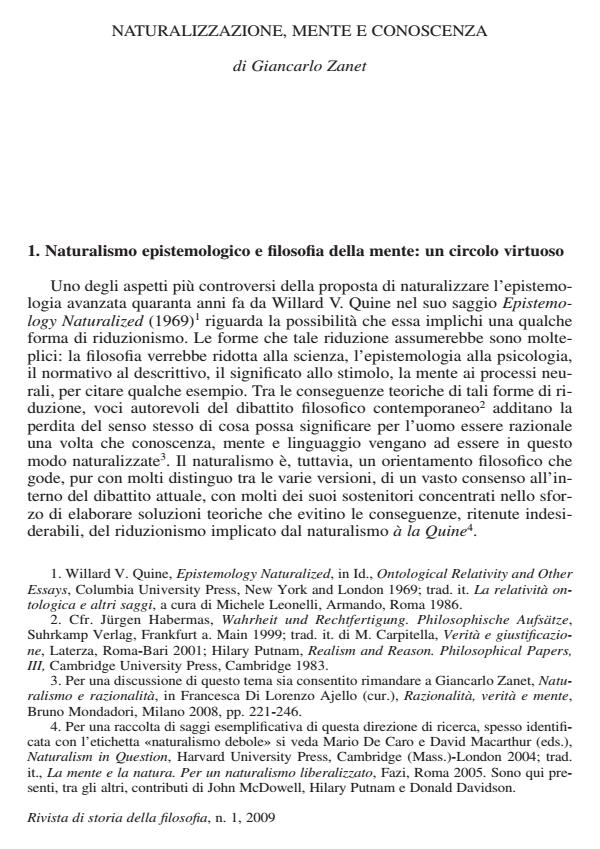Naturalizzazione, mente e conoscenza
Journal title RIVISTA DI STORIA DELLA FILOSOFIA
Author/s Giancarlo Zanet
Publishing Year 2009 Issue 2009/1
Language Italian Pages 36 P. 151-186 File size 668 KB
DOI 10.3280/SF2009-001009
DOI is like a bar code for intellectual property: to have more infomation
click here
Below, you can see the article first page
If you want to buy this article in PDF format, you can do it, following the instructions to buy download credits

FrancoAngeli is member of Publishers International Linking Association, Inc (PILA), a not-for-profit association which run the CrossRef service enabling links to and from online scholarly content.
Naturalizzazione, mente e conoscenza - A controversial issue regarding Quine’s naturalised epistemology is that it may involve some form of reductionism. This article focuses on one of these forms, analysing the interplay of his philosophy of mind and epistemology. It aims to show that if we take into proper consideration the way in which the version of anomalous monism embraced affects his conception of mental states like sensations and propositional attitudes, Quine’s philosophy of mind should be regarded as anti-reductionist. Through a discussion of his theory of perception, I try to argue that what is entailed by it is, in a sense only partially accepted by Quine himself, that neither perception nor observational language can be strictly reduced to their stimulatory conditions. By pointing out the relevance that Quine attributes to the mechanism of empathy as a means for ascribing propositional attitudes, a further interesting argument is provided to underline that, within a naturalized epistemology, there is room for a non-reductive description of mind in some ways close to the results of the hermeneutic tradition.
- Quine and the Contemporary Debate on Mindreading Giancarlo Zanet, in Disputatio /2012 pp.395
DOI: 10.2478/disp-2012-0006
Giancarlo Zanet, Naturalizzazione, mente e conoscenza in "RIVISTA DI STORIA DELLA FILOSOFIA" 1/2009, pp 151-186, DOI: 10.3280/SF2009-001009